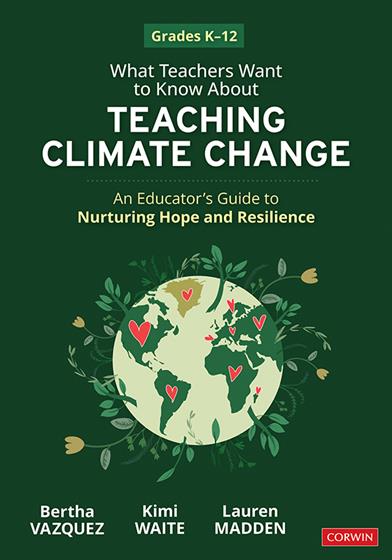Description
Inspire the next generation to create a sustainable and hopeful future
Climate change is one of the greatest threats humanity has ever faced. The most recent 10 years have been the hottest on record, and the results have been increasingly extreme storms, flooding, and fires around the world. Understanding the causes of climate change and potential solutions is essential learning for students, and is aligned with NGSS standards. A recent report by the North American Association for Environmental Education Research indicates that 74 percent of U.S. teachers and 80 percent of administrators agree that climate change will have an overwhelming impact on students’ futures. But according to the same survey of more than 1000 teachers, only 42% say they even mention climate change in the classroom.
In an effort to support teachers, Corwin conducted a market survey sent to more than 135,000 educators and school leaders in North America, asking about their concerns regarding teaching climate change. The top three issues reported were concern that the content was not related to their subject (65%), a worry that children were too young or vulnerable for such an upsetting topic (20%), and lack of confidence in their ability to understand and teach the science behind climate change (17%).
In response to these concerns, authors Bertha Vazquez, Kimi Waite, and Lauren Madden wrote What Teachers Want to Know About Teaching Climate Change to provide research-based and classroom-tested guidance for K-12 educators to teach climate change accurately, effectively, and confidently. The book gives busy teachers the tools they need to incorporate climate change education across disciplines and align the content with existing standards without adding a new topic for overworked teachers to tackle.
Offering a practical roadmap for teachers to integrate climate change lessons into their existing curriculum, this book
- Includes crowd-sourced tips for reducing our carbon footprint and inspiring success stories from teachers who have effectively taught climate change in their classrooms
- Focuses on overcoming additional obstacles to teaching climate change, such as lack of data literacy and potential partisan pushback
- Debunks the 10 most common misconceptions about climate change and encourages critical thinking skills to help students identify misinformation
- Fosters hope in students by acknowledging their personal agency and encouraging collective and meaningful action that builds community
- Provides bibliographies of free curriculum, lessons, and other content for teaching climate change across various age groups and disciplines
This book is an essential resource for educators and leaders inside and outside of the science classroom who want to help their students build a better tomorrow.





